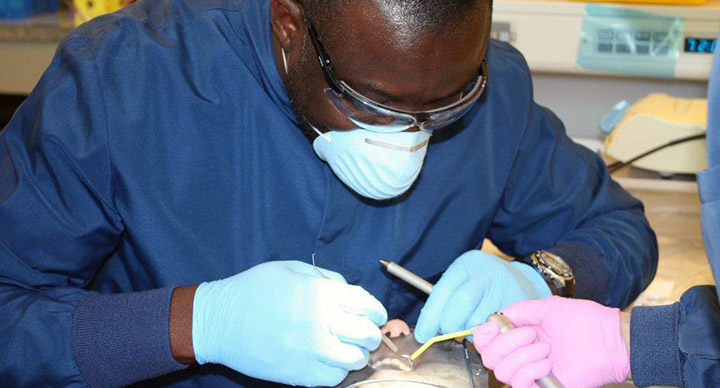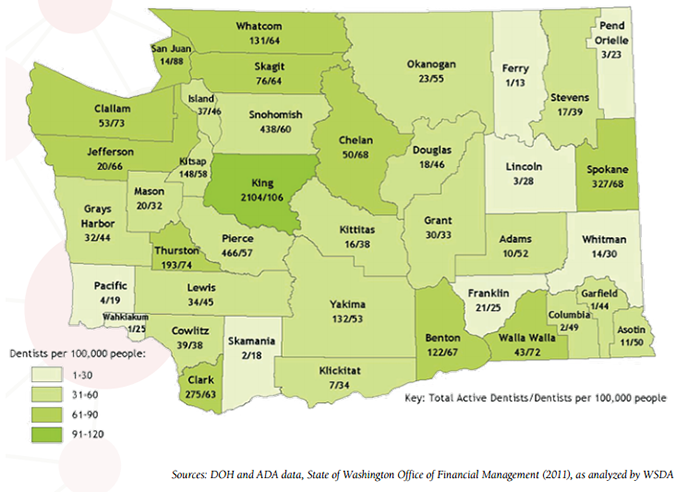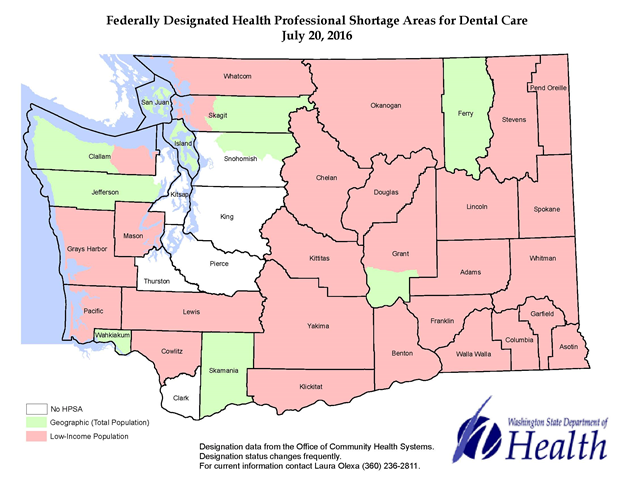
Why develop the RIDE program?
As the population of Washington state has grown, the dentist per capita ratio in rural areas has declined. According to the 2012 WSDA Dental Workforce Report, 92% of dentists in Washington practice in an urban area leaving many rural communities dangerously underserved.

This problem is exacerbated by the fact that older professionals tend to be concentrated in rural areas, and 57% of the state’s rural dentists are expected to retire in the coming years. Without additional capacity in dental education, communities in Washington State and throughout the northwest region will face increasing dentist shortages.
As one of the top-rated dental institutions in the nation in clinical training and scientific research and the only fully-accredited dental school in the states of Washington, Wyoming, Alaska, Montana, and Idaho (WWAMI), the University of Washington School of Dentistry (UWSOD) has taken a leadership role in responding this issue.

The Regional Initiatives in Dental Education (RIDE) program addresses the growing dentist shortages in the region by increasing access to publically funded dental education, producing additional dentists to serve patients in rural and underserved areas, and improving oral health outcomes in the state and region.
RIDE Impact
RIDE’s educational outreach and distance learning capacity extends educational opportunities to students and community dentists who would not normally have access to them, helping to raise the quality of dental care delivered to rural and/or underserved populations.
- By exposing students to different populations and needs, RIDE graduates are better prepared for meaningful careers and have the skills to meet a changing population and job market.
- The RIDE program promotes dissemination of new knowledge and practices through continuing dental education.
- RIDE benefits the economy of the Spokane area by bringing additional faculty, students, staff, and dental professionals to the region.
- RIDE is also currently working with the state of Montana to develop a sustainable dental education model in that state.
The RIDE program’s impact on public health and the economy of central and eastern Washington has attracted the support of key stakeholders including:
- The Spokane District Dental Society
- The Washington State Dental Association
- The Washington Dental Service Foundation
- Local Community Health Centers and Clinics
- Eastern Washington University.
By strengthening inter-professional education efforts and dental education infrastructure throughout the region, the RIDE program continues to produce talented, service-oriented dental professionals and improve access to quality dental care in rural and underserved areas across the northwest.